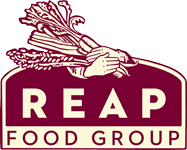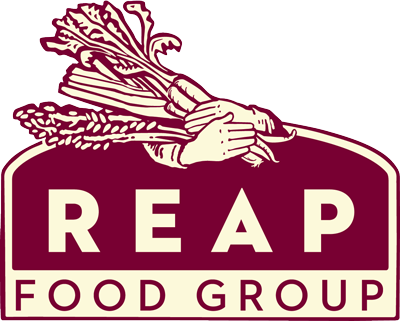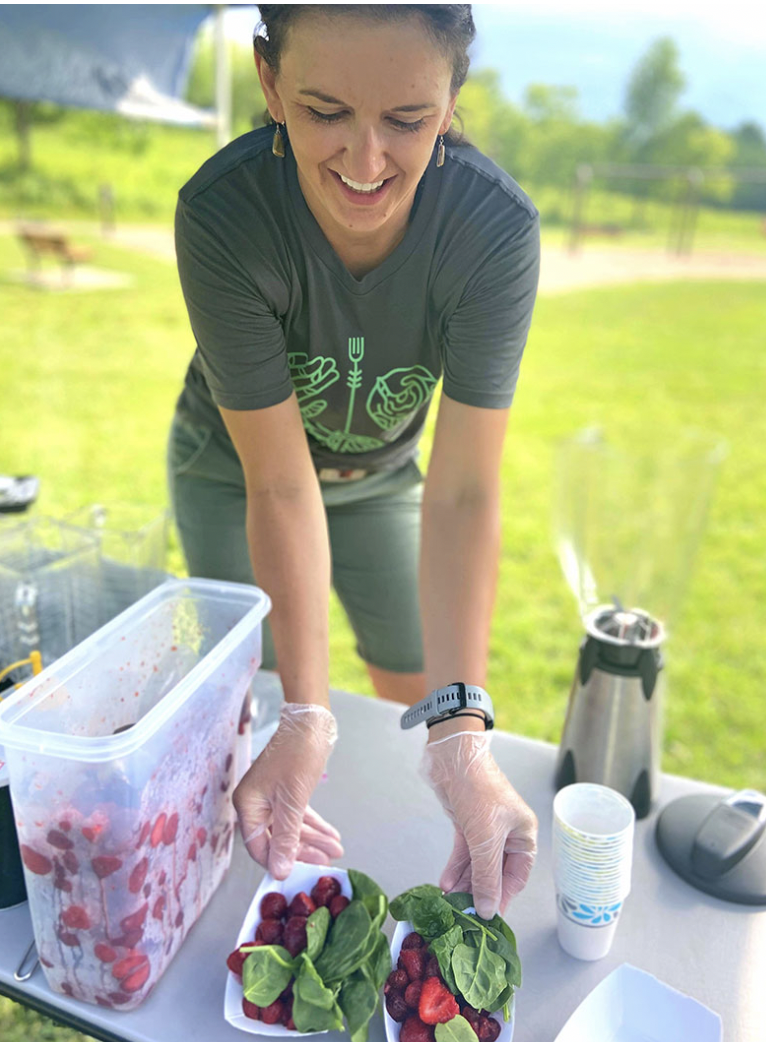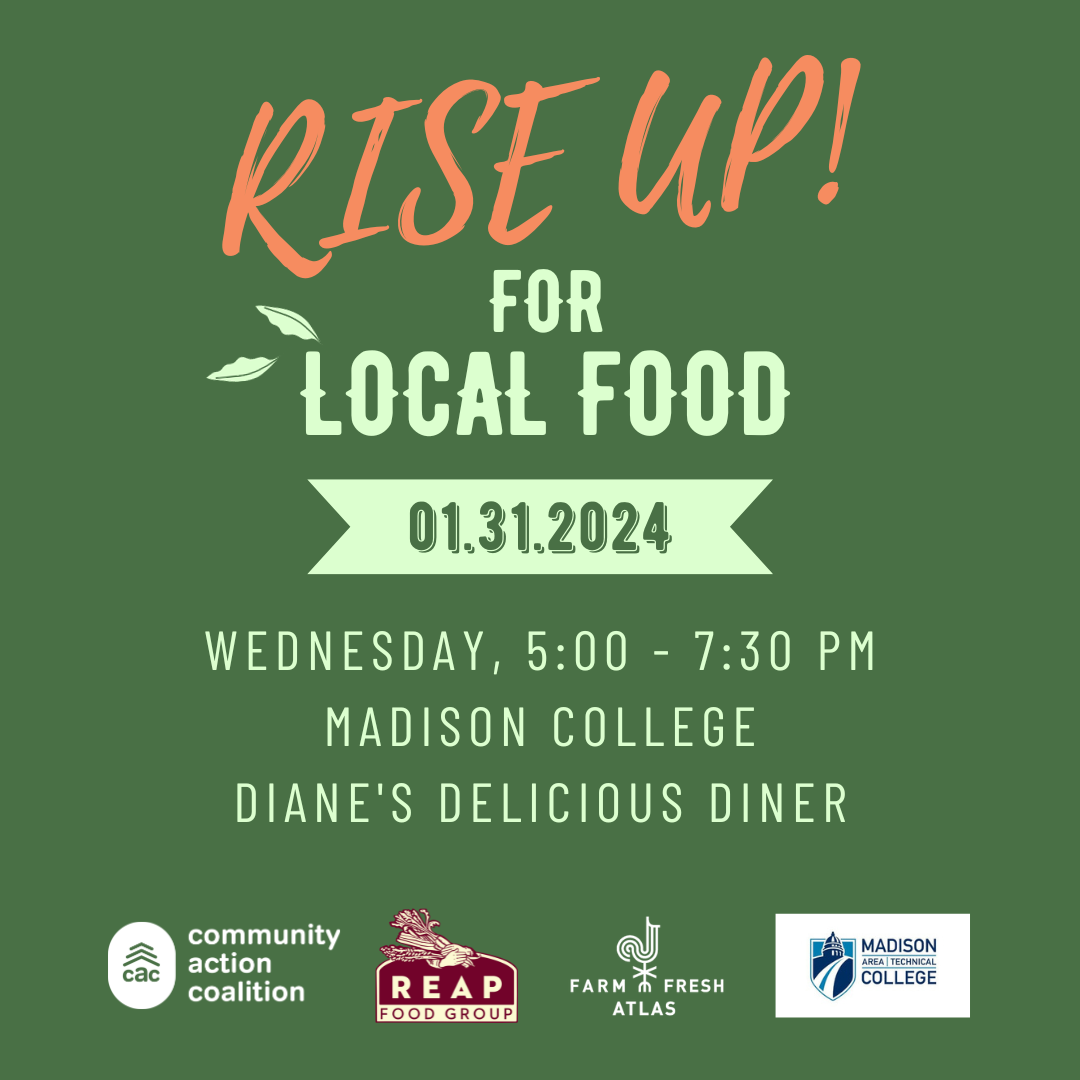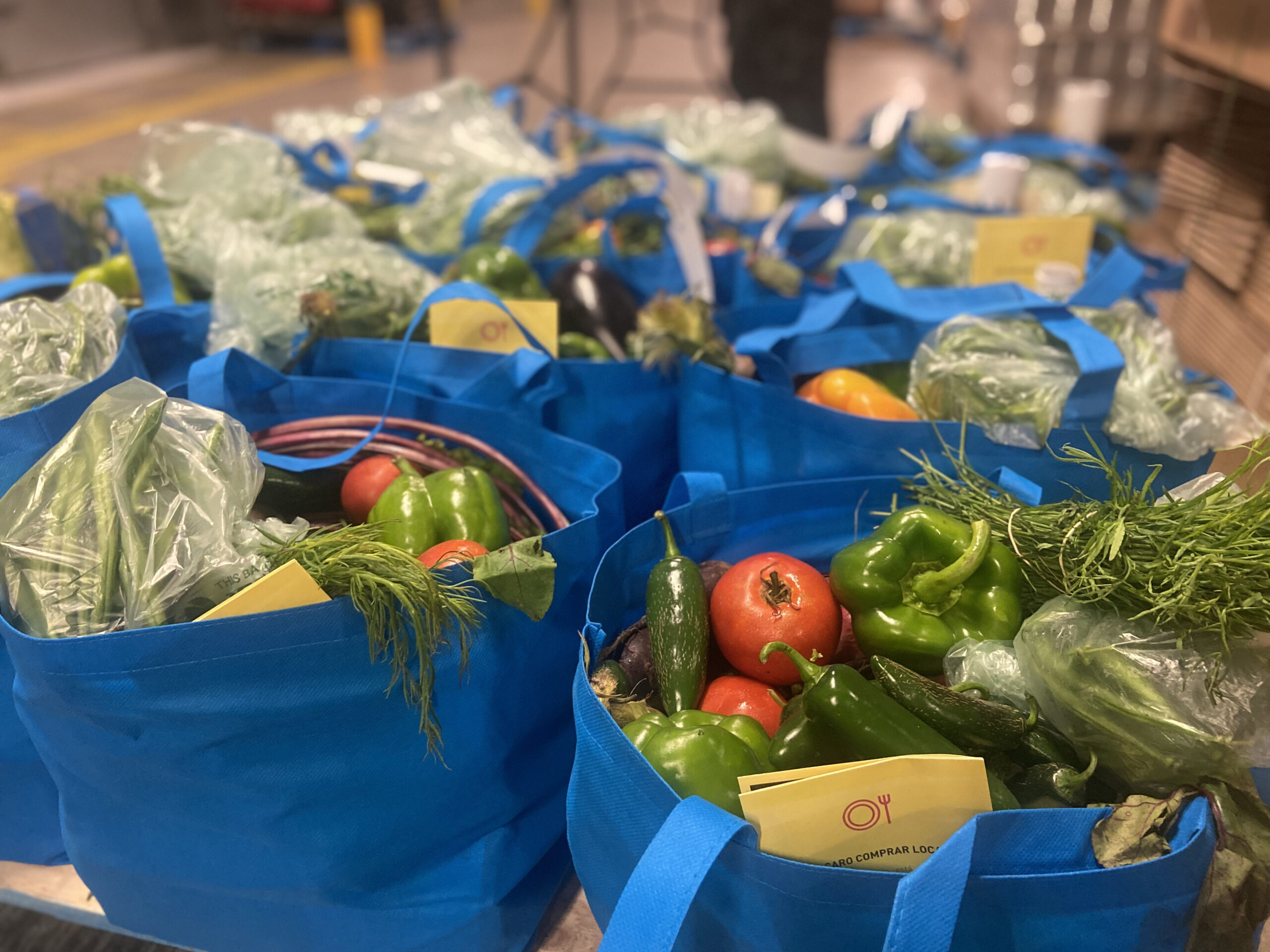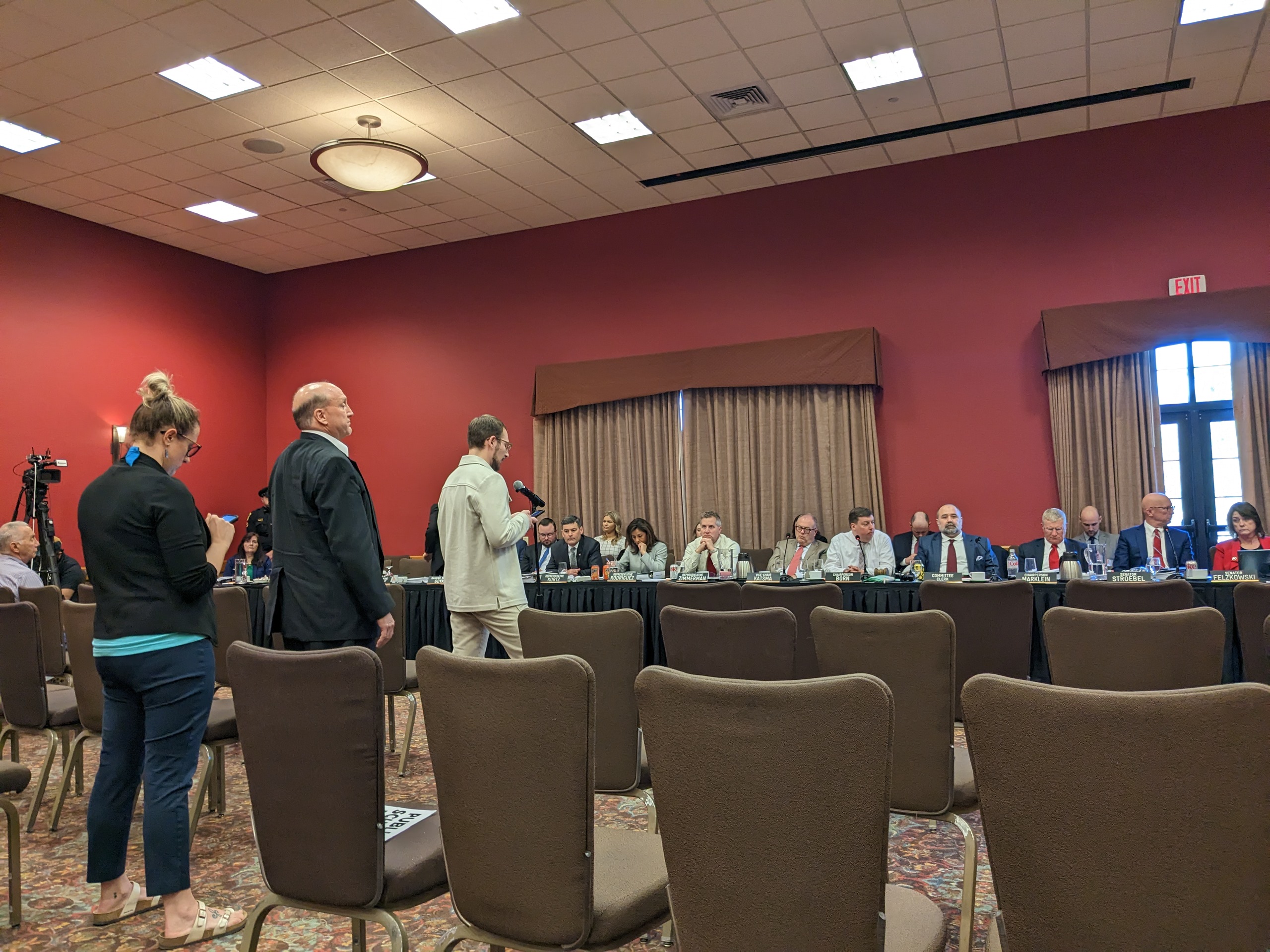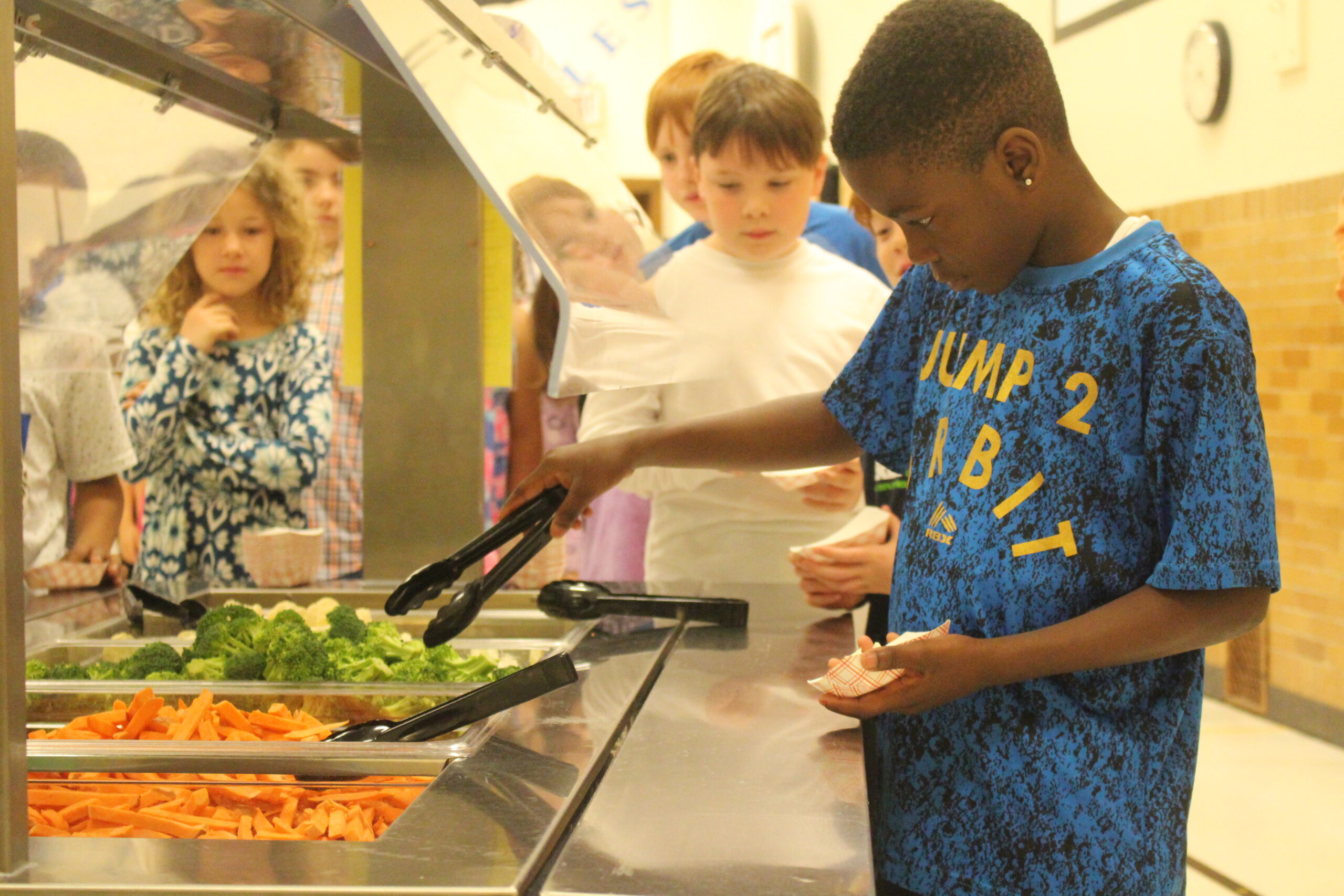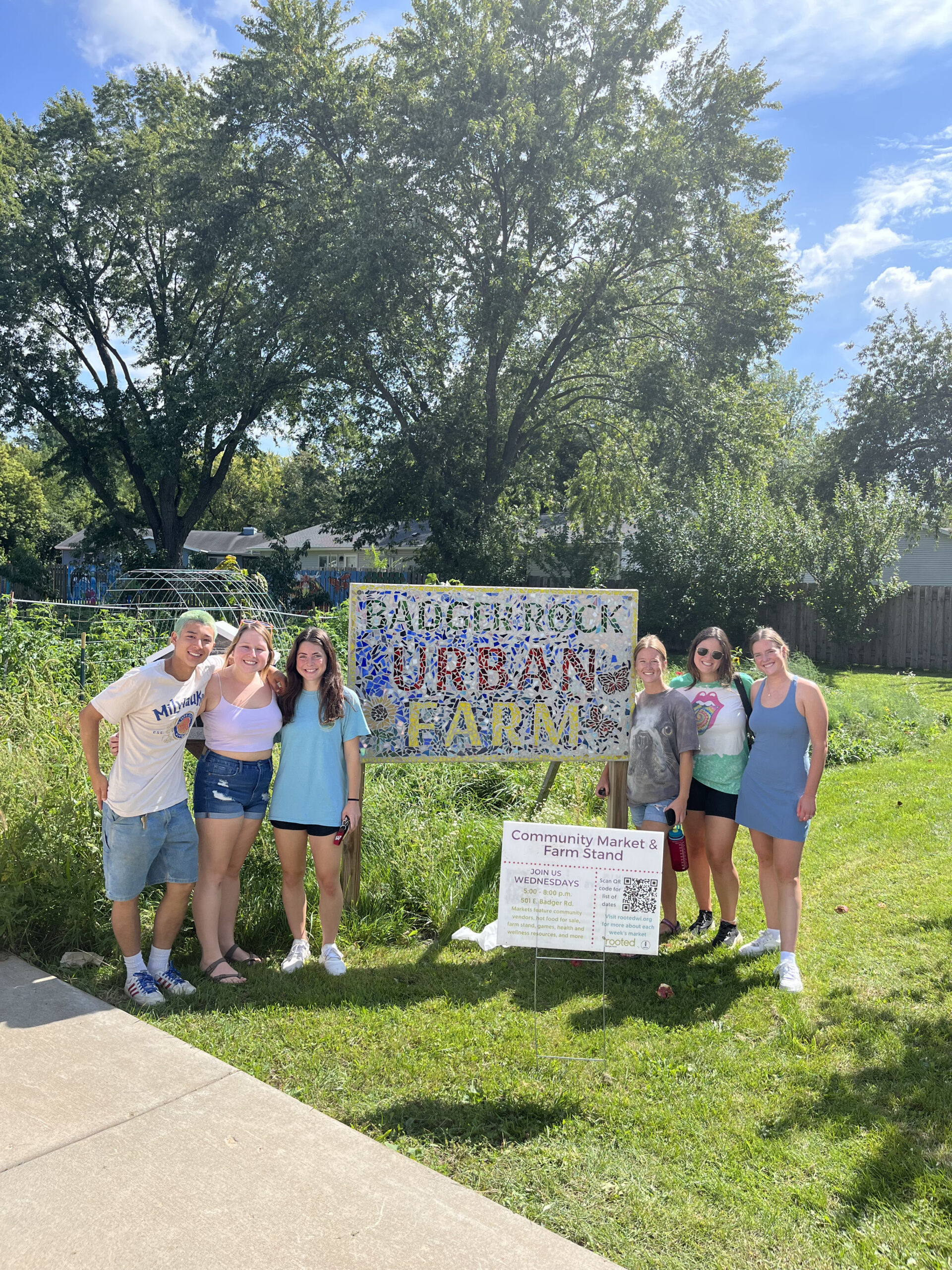REAP's Farm to School Director, Allison Pfaff Harris, recently shared an article in Madison Locally Sourced sharing the evolution of the Farm to School program over the past 25 years, and particularly since the onset of the COVID pandemic. As Allison explains, the pandemic-induced pause in on-site programming gave REAP an opportunity to reassess and reimagine its role in the farm to school movement: From educators, farmers, and producers alike, we heard the importance of uplifting and connecting the diverse voices of agriculture to students in the classroom and for students to both see and envision themselves shaping communities through careers in agriculture and local food...
Uncategorized
April, 2023 The Dane County Food Collective (DCFC), established in 2022, aims to create a stronger food system in Dane County. Composed of service industry workers, farmers, nonprofit organizations, and community members, DCFC "works for the betterment of our local food system through advocacy, resource-sharing, health and wellness efforts, and collective action."This month REAP Food Group shows its support for DCFC by becoming its fiscal sponsor. Fiscal sponsorship allows DCFC to build its mission and organization structure from the ground up, while accessing resources available to nonprofits, like tax deductible donations and grant funding. REAP Executive Director, Phil Kauth explains, "When REAP was approached to be a fiscal sponsor for [DCFC], I was excited about the potential for collaboration. DCFC's network of chefs and food entrepreneurs are passionate about changing the food system, which aligns with REAP's mission. We are excited about collaborating on hosting events and the potential for advocacy to change policies affecting the food system, [and] looking forward to working together and learning from each other." REAP team member and DCFC organizer Noah Bloedorn adds, “The strength of DCFC is that it is member-led and nimble, having REAP as a fiscal sponsor provides us with organizational support that allows us to raise funds, apply for grants, and provides us with administrative oversight without requiring DCFC to employ additional staff or have a board (which would take time and resources away from focusing on programming).” Learn more about DCFC below, and visit @danecountyfoodcollective on Instagram to learn how to get involved in the last few days of Wellness Weeks. ...
Attention farmers and producers: Join REAP and the Farm Fresh Atlas plus the Community Action Coalition at Madison College on Jan. 31. Connect with local purchasers and local food supporters and learn about the new RFSI (Resilient Food System Infrastructure) Program. Network with other local farmers, restaurants, institutional purchasers, food pantries, and more. Food and drinks will be provided. ...
As we mark 25 years catalyzing change in the local food landscape, REAP Food Group has even more reason to celebrate: in collaboration with multiple local partners, we recently received several grants spanning projects related to food systems, farmer access to markets, and food education in public schools. USDA This year the USDA Agricultural Marketing Service awarded more than $32 million for projects nationwide to expand and strengthen local and regional food systems through the Regional Food System Partnerships (RFSP) grant program and Farmers Market Promotion Program, and nearly $73 million for projects that support farmers growing specialty crops through the Specialty Crop Block Grant Program (SCBGP). REAP and partners submitted winning proposals for each grant program. In response to the effects of the COVID-19 pandemic on our regional food system, including the amplification of food system inequities, supply chain gaps, and more, many individuals and organizations in the 13-county area surrounding Madison knew the region had to address its vulnerabilities. A collection of food systems organizations and food councils in Dane County proposed the creation of a collaborative, community-driven process to assess food system gaps and weaknesses, and ultimately create a food action plan. An RFSP grant–one of only 10 in the nation–awarding almost $250,000, plus additional financial support from Dane County, will help create that plan. “The USDA Regional Food System Partnership grant awarded to REAP will allow for a deep community-engaged process, involving local farmers, food retailers, institutional buyers, food banks and pantries, community organizations, and local residents, that will inform the development of a long-desired food systems action plan for the Madison and Dane County region.” - Marcia Caton Campbell, Rooted READ THE FULL FOOD ACTION PLAN PRESS RELEASE HERE. Meanwhile, with USDA funds from both from the Farmers Market Promotion Program (FMPP) grant as well as Specialty Crop Block Grant via the WI Department of Agriculture, Trade, and Consumer Protection (DATCP), REAP plans to expand the 21-year-old Farm Fresh Atlas–an annual print and internet guide to sustainable family farms, farmers’ markets, grocers, and restaurants–to represent the entire state of Wisconsin. “Our primary objective is to implement an innovative marketing platform, elevating the experience for local food producers and consumers alike. Looking ahead, we aim to introduce valuable features to the Atlas, covering the entirety of Wisconsin and creating a comprehensive, centralized resource for consumers seeking locally sourced products.” - Noah Bloedorn, REAP Food Group NIFA Finally, the Food & Agriculture Service Learning Program (FASLP) announced 9 awardees whose proposals increase the knowledge of agricultural science and improve the nutritional health of children. The initiative is part of a broader effort to not only increase access to school meals for low-income children, but also to dramatically improve food quality. REAP’s winning proposal aims to integrate and expand food justice and education in MMSD schools by developing classroom curriculum, and offering high school students opportunities to engage local farmers and food justice leaders. Central to the project’s goals: help students build critical leadership skills that they can apply towards future careers. ...
Last week, REAP was awarded the Above and Beyond Award, given to "a business who has taken the extra step in doing good in the community," at the Local Biz Awards hosted by Dane Buy Local. Our executive director, Phil Kauth, was honored to accept the award representing the organization. Congratulations to Garver Feed Mill for being nominated for the Community Supporter Award! See the full list of nominees at https://danebuylocal.com/2023-biz-nominees/. ...
Feeding America, the nation’s largest hunger-relief organization, recently named “Farms to Families,” the collaborative fund by Roots4Change and REAP Food Group, one of the recipients of its Food Security Equity Impact Fund grant. Second Harvest Food Bank of Southern Wisconsin, a member of Feeding America and partner in Farms to Families, applied for the grant. Farms2Families was co-created by Roots4Change and REAP during the height of the pandemic in 2020. It began as a way to directly support Latino/indigenous families with access to healthy, sustainable food, health and housing assistance, and through employment opportunities. The program has persisted while expanding its scope. Since Fall 2022, Farms to Families has provided Latino/Indigenous families in their postnatal journeys with nutritious food plus co-learning spaces for culturally relevant food preparation, breastfeeding, and more. Ingredients sourced from BIPOC and women-owned local food farmers and businesses are packed for families and distributed from Second Harvest Food Bank of Southern Wisconsin. The Feeding America grant, the second release of its kind, released more than $4 million to 10 food banks working with 15 community-based organizations to address the root causes of hunger and food insecurity. A total of 85% of the grant goes to Roots4Change and REAP Food Group, while Second Harvest receives 15%. The Feeding America grant will allow Roots4Change and REAP to continue funding Farms to Families for two more years. “Together, and as a collective, we can work in partnership with neighbors, community partner organizations, and network members to elevate and to center the importance of equity as we move forward in making a deeper impact across this nation,” said Mya Price, Food Security Equity Impact Fund director at Feeding America. “With the Food Security Equity Impact Fund, Feeding America is investing in innovative solutions created by community-led organizations that will remove the barriers and increase equitable access to food while centering their neighbor’s voices in the work they do.” The Food Security Equity Impact Fund is part of Feeding America’s broader grantmaking strategy to intentionally support communities of color and rural communities known to be disproportionately impacted by food insecurity. It was created in March 2021 and was seeded with a $20 million donation from MacKenzie Scott. For more information about Feeding America and the Food Security Equity Impact Fund, please visit feedingamerica.org/equityimpact. ...
Update 6.13.2023: On Monday, June 12, members of Healthy School Meals for All held a rally inside the State Capitol in support of free school meals for all and other provision rejected in the recent state budget vote. Read about the rally and hear speeches on Channel 3000, CBS, WORT, and SoundCloud. It’s not over, it’s just the beginning. During the current 2023-2024 state legislative session, many organizations, including REAP Food Group, have been advocating to include the Governor’s Healthy Meals, Healthy Kids plan in the final Joint Committee on Finance budget. The Healthy Meals, Healthy Kids plan includes three components: 1) Appropriating state dollars to provide free school breakfast and lunch meals to all Wisconsin K-12 students (also known as Healthy School Meals for All), 2) Fully funding state school breakfast reimbursement at 15-cents per meal served, as called for in state law, and 3) Reimbursing school districts an additional 10-cents per meal for those including locally sourced foods. We are disappointed that the Joint Committee on Finance removed both Healthy School Meals for All and the 10-cent local food reimbursement incentive from the budget. The $2.75 million allocated in the Governor’s budget for schools to serve local foods, out of an historic one time state budget surplus of approximately $7 billion, would have grown markets for Wisconsin farmers, stimulated the local economy, and provided all children access to fresh local foods through school. The $2.75 million allocated in the Governor’s budget for schools to serve local foods, out of an historic one time state budget surplus of approximately $7 billion, would have grown markets for Wisconsin farmers, stimulated the local economy and provided all children access to fresh local foods through school. Even though breakfast reimbursement is still in the budget, a majority of the Joint Committee on Finance members must vote to approve including it in the committee’s budget bill. This vote will occur at a committee meeting in the next few weeks, when they vote to approve the Department of Public Instruction’s budget. REAP and the Healthy School Meals For All Coalition will continue to advocate for Healthy School Meals for All and the 10-cent per meal local food reimbursement incentive, as these are vital investments in our communities that create Wisconsin jobs in food and agriculture, save families time and money, and ensure all children get the nutrition they need to learn and succeed in school. [T]hese are vital investments in our communities that create Wisconsin jobs in food and agriculture, save families time and money, and ensure all children get the nutrition they need to learn and succeed in school. Meanwhile, REAP Food Group commits to using the platform we’ve built over 25 years in the community to push even past budget approval. We will: Connect schools with local farmers and growersListen to voices from around the state to understand needs and solutionsEducate our audience on the urgency of free school meals for the health of our children and local economy Despite being removed from the budget, there is still time to voice our support for Healthy...
Last month, Governor Evers included free school meals for all, strategic investments in school breakfast funding, and a local purchasing incentive program in his proposed biennial budget. More specifically, the Governor’s Healthy Meals, Healthy Kids plan includes: Creating the Healthy Meals, Healthy Kids program, an initiative aimed at improving student health and reducing hunger by investing $120.2 million in FY 2024-25 to fully fund school breakfasts and lunches for all children; Providing $4.3 million in FY 2023-24 and $4.7 million in FY 2024-25 to increase the school breakfast reimbursement rate to 15 cents per meal and extending eligibility for the reimbursement to independent charter schools and state residential schools operated by the Department of Public Instruction (DPI); and Incentivizing schools to support Wisconsin farmers, food producers, and local economies by providing $2.75 million in FY 2024-25 for an enhanced 10 cents reimbursement per meal for those including locally sourced foods. Read REAP's letter to the Joint Finance Committee HERE. Take Action Submit a brief video in support of free school meals for all by Friday, March 31. Full instructions are provided here. Having farmers and local food advocates speak to this issue strengthens the coalition’s ability to engage elected officials who are interested in agriculture and economic development. 2. Join the next Healthy School Meals for All Wisconsin coalition meeting on Thurs, March 9, from 1:30-2:30 pm. Register to join the meeting and Add it to your monthly calendar. 3. Take a look at who is on the Joint Committee on Finance and the Education Committees (Assembly and Senate). If you know anyone from these representatives’ home districts, encourage them to contact their legislators in support of the Healthy Meals, Healthy Kids plan. It is also helpful to contact any Republican legislators, even if they are not on either of these committees. You can find your elected officials here. 4. Submit a letter to the editor expressing your viewpoint. There are many local newspapers, magazines, and online media outlets that accept brief letters to the editor. Here is the submission information for Cap Times, the Journal Sentinel, and the Wisconsin State Journal. Sign up here if you’d like to stay updated and/or be alerted about opportunities to provide public testimony. If you have direct questions, please reach out to Allison Pfaff Harris at REAP Food Group (allisonph@reapfoodgroup.org). See additional resources from the School Nutrition Association of Wisconsin on how to set up meetings and some suggested talking points. ...
Noah Reinkober, a student in the UW Madison School of Human Ecology, joined us this fall as a Farm to School intern, supporting Director Allison Pfaff Harris and REAP's partnership with MMSD Food and Nutrition. The following article was researched and written by Noah. Many people today are familiar with the concept of a “food desert," not just those in academia or the fields of sociology and human ecology. The term, which began being used in the 1990s, refers to a neighborhood, often in an urban environment, which has very little access to food. People living in a food desert may have restaurants in the area, but have to travel far to purchase foods at a grocery store, or they may simply be lacking in nearby food entirely. As the understanding of this issue has progressed over the last few decades, activists and researchers have proposed different labels for these areas. “Food swamp," a term which came into usage about a decade ago, refers to the same areas, but emphasizes the fact that these neighborhoods are often saturated with unhealthy foods, rather than lacking food entirely. Both of these terms are misleading when it comes to the conversation about food access, however. Deserts and swamps, unpleasant as they’re often perceived to be, are natural parts of the global environment with unique and thriving ecosystems. Neighborhoods which are deprived of healthy food options are not naturally occurring. To better describe this phenomena, Karen Washington, a Black farmer, activist, and organizer, came up with the term “food apartheid.” Rather than labeling a lack of food access as a natural occurrence, Washington’s term explicitly states the role that politics, economics, and histories of classism and racism play in the matter. Food apartheid occurs when institutions fail to invest in communities which need the investment the most. Food apartheid occurs when institutions fail to invest in communities which need the investment the most. Segregation, poor public transportation, redlining, high food prices, lack of access to growing land, and perceived lack of profitability for private businesses are just a few examples of things which inform food apartheid, all of them products of society, not nature. Karen Washington grew up in New York City, so that is the context from which she is working, but the systemic racism and classism which created food insecurity in NYC exists in Madison, WI too. According to Nicholas Heckman, a Public Health Planner in Policy and Food Security in Madison, because of how new the concept is, food apartheid “hasn’t yet been effectively measured at the local level.” Rather, data around food access and food insecurity often comes from the state or county, and researchers must use “various proxy data points and population characteristics to draw conclusions.” Though now dated, and lacking the context of COVID-19, Heckman’s 2016 report, Hunger and Food Security in Wisconsin and Dane County, sheds some light on the disparities which exist on the state and county levels. In 2016, it was reported that 12.4% of all people in Wisconsin, and 11.8% in Dane...
On Tuesday, May 24, REAP Food Group, in partnership with Madison Metropolitan School District (MMSD) Food and Nutrition, zoomed into classrooms for our second Virtual Farm Tour, this time with farmers Patty and Ky of Wonka's Harvest in Hollandale. Geared to grades K-5, the live presentation included an experiment demonstrating the benefits of no-till agriculture using various soil mediums. Patty and Ky answered questions from students about the favorite crops they grow, and they shared their love of bees. Watch a recording of the tour, and consider following Patty and Ky's lead and improve your own garden soils with compost! Virtual Farm Tours are made possible through a grant and brought to classrooms by REAP Food Group, in partnership with Madison Metropolitan School District (MMSD) Food and Nutrition in an effort to deliver the sights and smells of Wisconsin-grown foods to MMSD classrooms through virtual farm tours, videos, and books. Shiftology Communication Virtual Farm Trips® facilitated the tours. The unique PR firm offers "one-of-a-kind learning experiences by connecting participants to real working farms from the comfort of their computers, classrooms, conference rooms and living rooms." https://youtu.be/hmk7bahUJCQ ...
- 1
- 2
